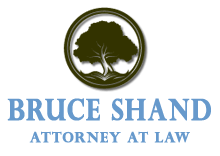Challenges When Selling The Inherited Utah Family Home
There’s the emotional aspect of getting a loved one’s home ready for sale — which likely includes clearing out his or her belongings and depersonalizing the rooms. There’s the financial cost of making necessary updates to attract buyers… And understandably, sometimes family members drag their feet. Images of growing up in the home with Mom and Dad prevent them from springing into action. They can’t let go.
Selling a home is never an easy process. Even if it moves on the real estate market, there is still the fact of moving itself. What about when it is not your home at all? What if it is the home of your parents, and perhaps your sole inheritance, with or without siblings? In that case selling the house can be rather difficult indeed, practically, financially, legally, and yes, emotionally.
When it comes to selling an inherited home, there are some complications to ride out and with which you must deal. For guidance, consider reading are recent MarketWatch article titled “How to sell an inherited home.”
Get past the practical facts of getting to the home (maybe you live states away) and moving out all of the possessions or figuring out what to do with them. Get past the emotional problems, too. How do you even go about selling it? Can the property move on the market to begin with or, alternatively, is there a better market for a rental and can you manage it? Who owns it exactly and, especially if it is in probate, when will those who will own it actually own it? Are there any liens on the property or a mortgage that may or may not be underwater?
The simple truth for some families is that it may be best not to inherit the house at all and to let it go into foreclosure. Are there creditors in line to receive from the estate? If yes, then you cannot take ownership from the estate until bankruptcy proceedings have finalized.
A few of these issues are drawn out in the article and worth the general advice offered. In the end, inheriting and selling the family home can be the uncomfortable intersection of estate law, tax law and real estate law.
Without a plan, a family can find themselves in a mess. Without competent counsel, they may have trouble getting back up and away from the problems. If you are planning your estate, real estate — especially your home — is an essential component that may be overlooked to the peril of your loved ones later if not properly addressed from all angles now.
Reference: MarketWatch (January 13, 2014) “How to sell an inherited home”






